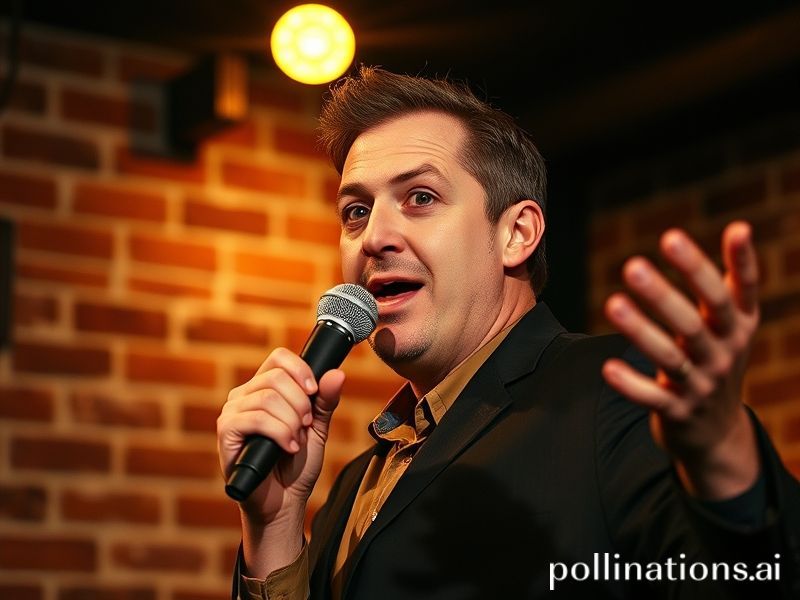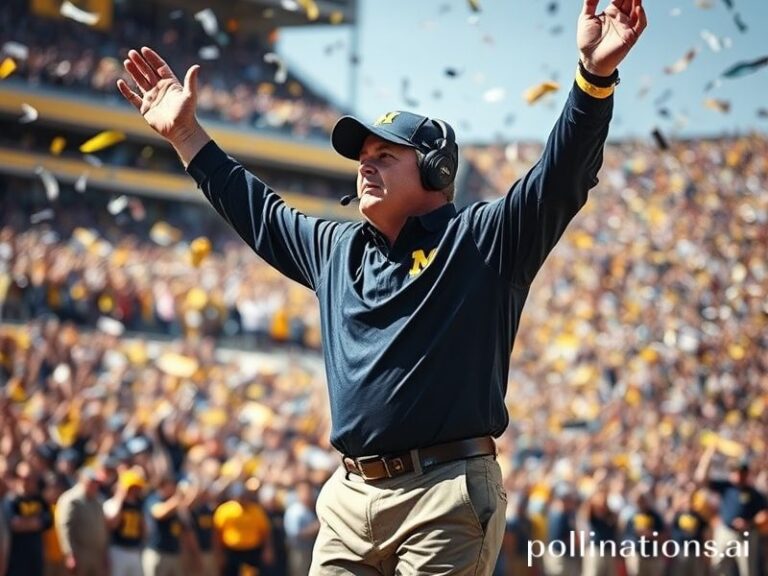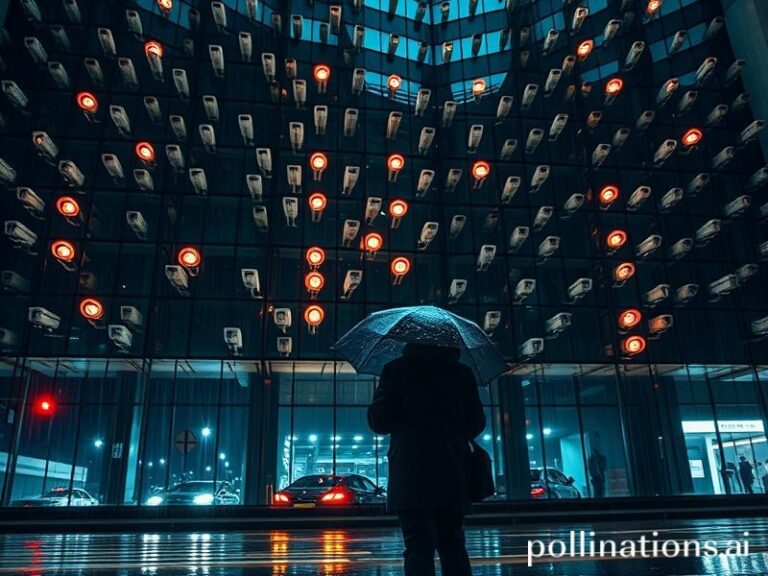Blind Ambition: How Chris McCausland Became the World’s Favourite Apocalypse Tour Guide
Chris McCausland: The Blind Comedian Teaching the World to See Its Own Absurdity
By Correspondent-at-Large, Dave’s Locker Global Desk
LONDON—Somewhere between the Brexit hangover, the climate meltdown, and the latest AI-generated pop star, a middle-aged Scouser with a white cane has become the most reliable export Britain has managed in years. Chris McCausland, 47, professional stand-up and accidental geopolitical irritant, is currently touring sold-out theatres from Sydney to Singapore, proving that when the world feels like a flaming skip fire, the one thing we still agree on is laughing at our own shared incompetence.
McCausland, blind since birth, opens most shows by reassuring sighted audiences that yes, he can find the microphone stand—“unless someone has moved it for a TikTok prank, in which case an international incident is minutes away.” The joke lands in 14 languages. Why? Because every nation now operates on the same lethal combo of performative outrage and Wi-Fi dependency. We are all, in effect, groping for the same metaphorical mic stand in the dark, praying nobody posts the stumble online.
International audiences don’t come for disability inspiration porn; they come for the exquisite pleasure of watching McCausland weaponise ignorance. A typical bit involves asking a front-row punter to describe the stage set, then interrupting with deadpan horror: “So you’re telling me the entire backdrop is just the sponsor’s logo in Comic Sans? No wonder the planet’s on fire.” The gag travels well. Whether you’re in a damp Dublin cellar or an over-air-conditioned Dubai mall, corporate vulgarity looks identical.
The global significance? McCausland has become a low-key soft-power asset, replacing the Royal Family as Britain’s preferred cultural export—cheaper, less racist, and able to clear customs without a 42-gun salute. Foreign ministries have noticed. Australia quietly added his tour dates to its “creative industries” trade ledger; Canada slipped him into a G7 side-event on inclusive humour (translation: please stop suing comedians). Even the EU, still sulking about the aforementioned Brexit hangover, lists him under “essential cultural goods,” alongside Beatles vinyl and HP Sauce.
Meanwhile, streaming platforms wage silent war over territorial rights. Netflix UK touts his special as “local triumph”; Netflix US markets it as “British blind guy DESTROYS airline food.” Somewhere in Silicon Valley, a content strategist just received a bonus for discovering that disability plus sarcasm equals algorithmic gold. McCausland’s response is characteristically acidic: “Great, I’ve gone from unseen to unskippable. Progress.”
The darker undercurrent, of course, is that McCausland’s ascent coincides with a planet-wide empathy deficit. Refugees drown, democracies teeter, billionaires race to leave Earth entirely—yet we’ll still queue to hear a Scouse comic explain why hotel braille menus are printed in 6-point font. There’s a lesson here: satire functions as the West’s last functional safety valve, cheaper than therapy and only slightly less effective than revolution. McCausland just happens to be the latest technician tightening the bolts.
Critics grumble that his act is “too universal,” code for not dwelling enough on the gritty specifics of visual impairment. McCausland shrugs: “If I wanted daily reminders of my condition, I’d just walk into more lampposts.” Besides, the universality is the point. When he mocks airline staff for handing him a plastic tray and announcing “your window seat,” the joke works in any language because bureaucratic absurdity is the one truly borderless experience.
As COP29 negotiators argue over commas in footnote 47(b), and as another crypto exchange implodes on livestream, McCausland will spend the autumn in Scandinavia, a region currently debating whether darkness is a season or a political forecast. He plans to test new material about Nordic honesty: “In Norway, when people say ‘I see what you mean,’ they’re legally required to mean it. Terrifying.”
In the end, McCausland’s global appeal rests on a single, unsettling truth: we’re all flying blind now, guided by malfunctioning instruments and the faint hope that someone, somewhere, is still laughing at the cockpit announcements. If that someone happens to be a blind bloke from Liverpool holding the mic, well—at least he admits he can’t see where we’re going either. Reassuring, in a doomed sort of way.







